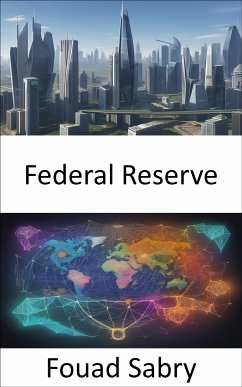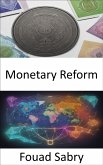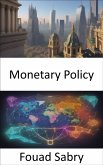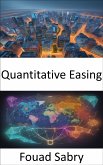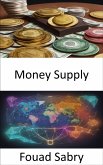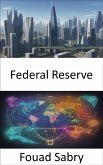What is Federal Reserve
Within the United States of America, the Federal Reserve System serves as the nation's central banking system. After a string of financial panics led to the desire for central control of the monetary system in order to ease financial crises, the Federal Reserve Act was enacted on December 23, 1913, which led to the establishment of the Federal Reserve System. The expansion of the powers and responsibilities of the Federal Reserve System has been brought about by a number of events that have occurred over the course of time, including the Great Depression in the 1930s and the Great Recession in the 2000s.
How you will benefit
(I) Insights, and validations about the following topics:
Chapter 1: Federal Reserve
Chapter 2: Central bank
Chapter 3: Monetary policy of the United States
Chapter 4: Money supply
Chapter 5: Federal Reserve Bank
Chapter 6: Federal Open Market Committee
Chapter 7: Federal funds rate
Chapter 8: Reserve requirement
Chapter 9: Federal funds
Chapter 10: Discount window
Chapter 11: Excess reserves
Chapter 12: Federal Reserve Bank of St. Louis
Chapter 13: Bank rate
Chapter 14: Fedwire
Chapter 15: Term auction facility
Chapter 16: Shadow banking system
Chapter 17: Bank regulation in the United States
Chapter 18: Federal Reserve responses to the subprime crisis
Chapter 19: Interbank lending market
Chapter 20: September 2019 events in the U.S. repo market
Chapter 21: Vice Chair of the Federal Reserve
(II) Answering the public top questions about federal reserve.
(III) Real world examples for the usage of federal reserve in many fields.
Who this book is for
Professionals, undergraduate and graduate students, enthusiasts, hobbyists, and those who want to go beyond basic knowledge or information for any kind of Federal Reserve.
Within the United States of America, the Federal Reserve System serves as the nation's central banking system. After a string of financial panics led to the desire for central control of the monetary system in order to ease financial crises, the Federal Reserve Act was enacted on December 23, 1913, which led to the establishment of the Federal Reserve System. The expansion of the powers and responsibilities of the Federal Reserve System has been brought about by a number of events that have occurred over the course of time, including the Great Depression in the 1930s and the Great Recession in the 2000s.
How you will benefit
(I) Insights, and validations about the following topics:
Chapter 1: Federal Reserve
Chapter 2: Central bank
Chapter 3: Monetary policy of the United States
Chapter 4: Money supply
Chapter 5: Federal Reserve Bank
Chapter 6: Federal Open Market Committee
Chapter 7: Federal funds rate
Chapter 8: Reserve requirement
Chapter 9: Federal funds
Chapter 10: Discount window
Chapter 11: Excess reserves
Chapter 12: Federal Reserve Bank of St. Louis
Chapter 13: Bank rate
Chapter 14: Fedwire
Chapter 15: Term auction facility
Chapter 16: Shadow banking system
Chapter 17: Bank regulation in the United States
Chapter 18: Federal Reserve responses to the subprime crisis
Chapter 19: Interbank lending market
Chapter 20: September 2019 events in the U.S. repo market
Chapter 21: Vice Chair of the Federal Reserve
(II) Answering the public top questions about federal reserve.
(III) Real world examples for the usage of federal reserve in many fields.
Who this book is for
Professionals, undergraduate and graduate students, enthusiasts, hobbyists, and those who want to go beyond basic knowledge or information for any kind of Federal Reserve.
Dieser Download kann aus rechtlichen Gründen nur mit Rechnungsadresse in A, B, BG, CY, CZ, D, DK, EW, E, FIN, F, GR, H, IRL, I, LT, L, LR, M, NL, PL, P, R, S, SLO, SK ausgeliefert werden.

